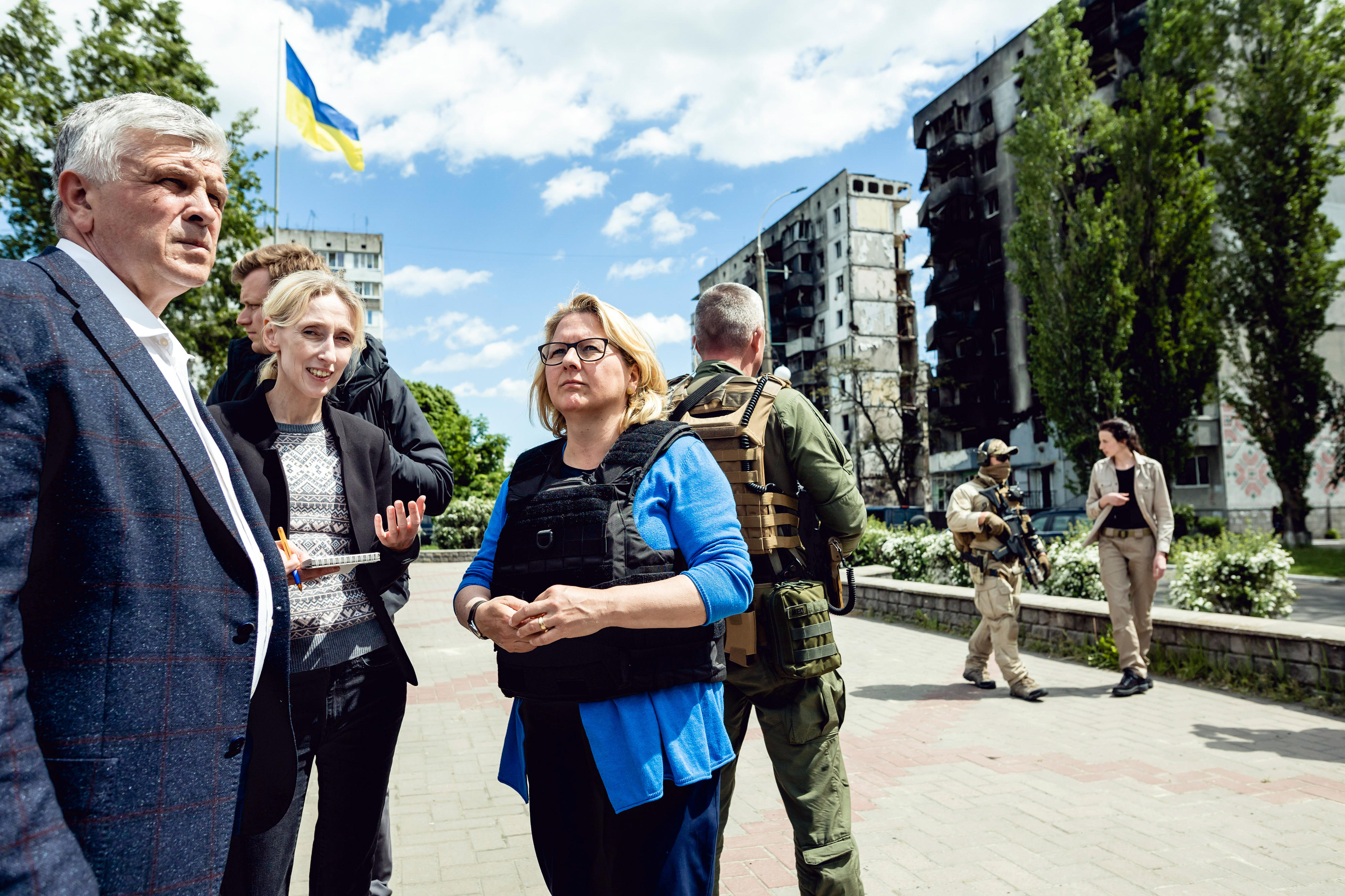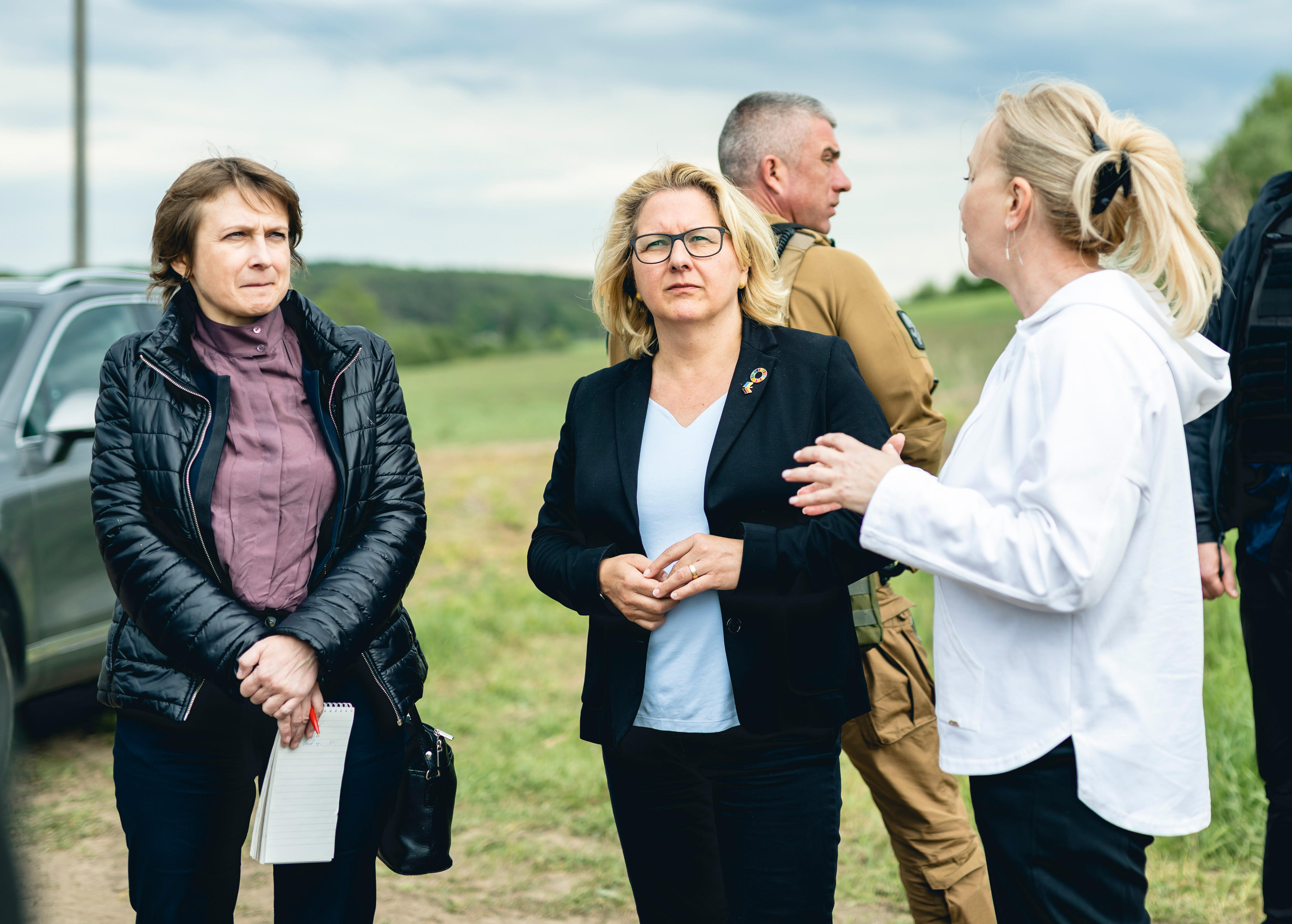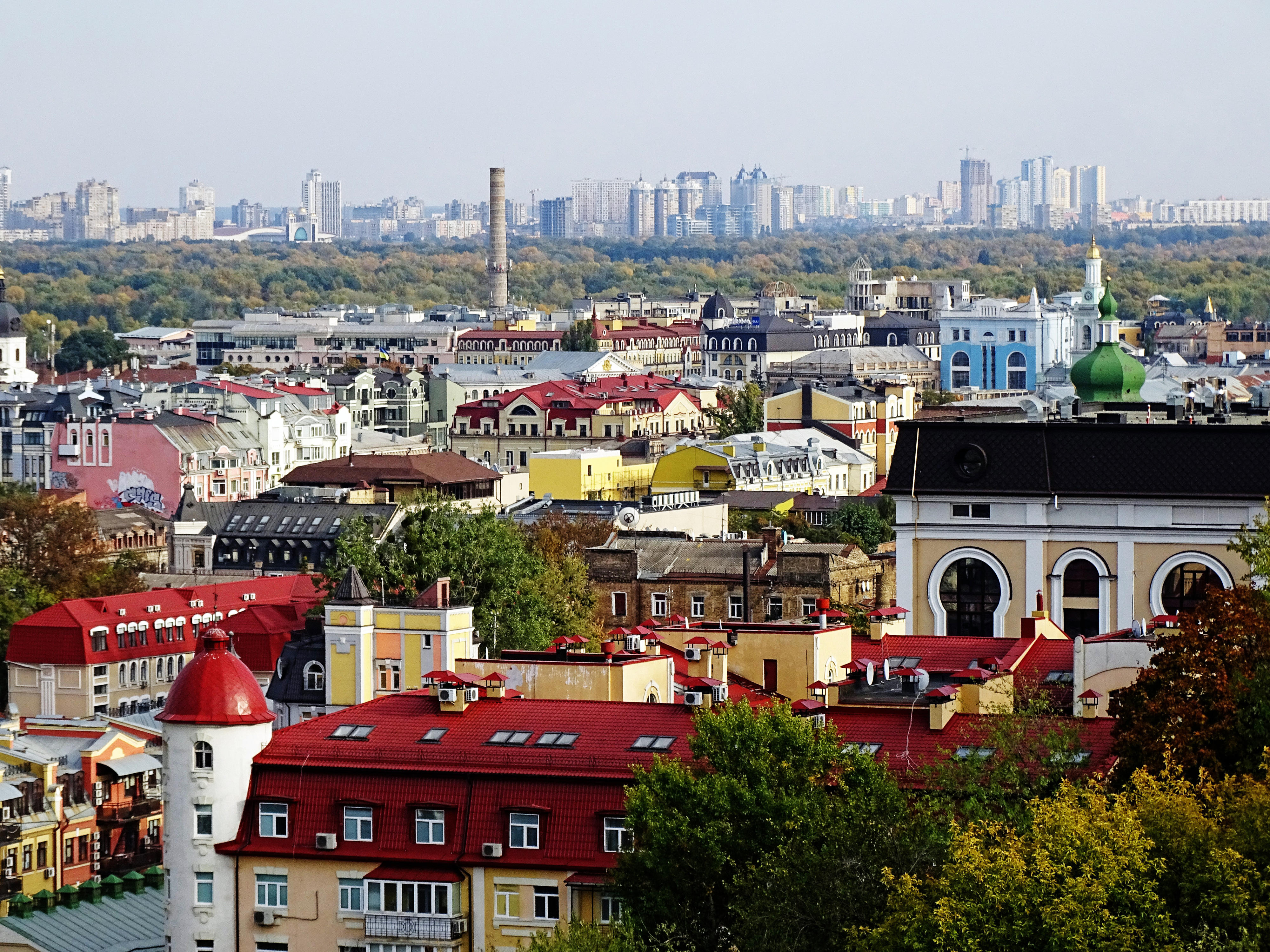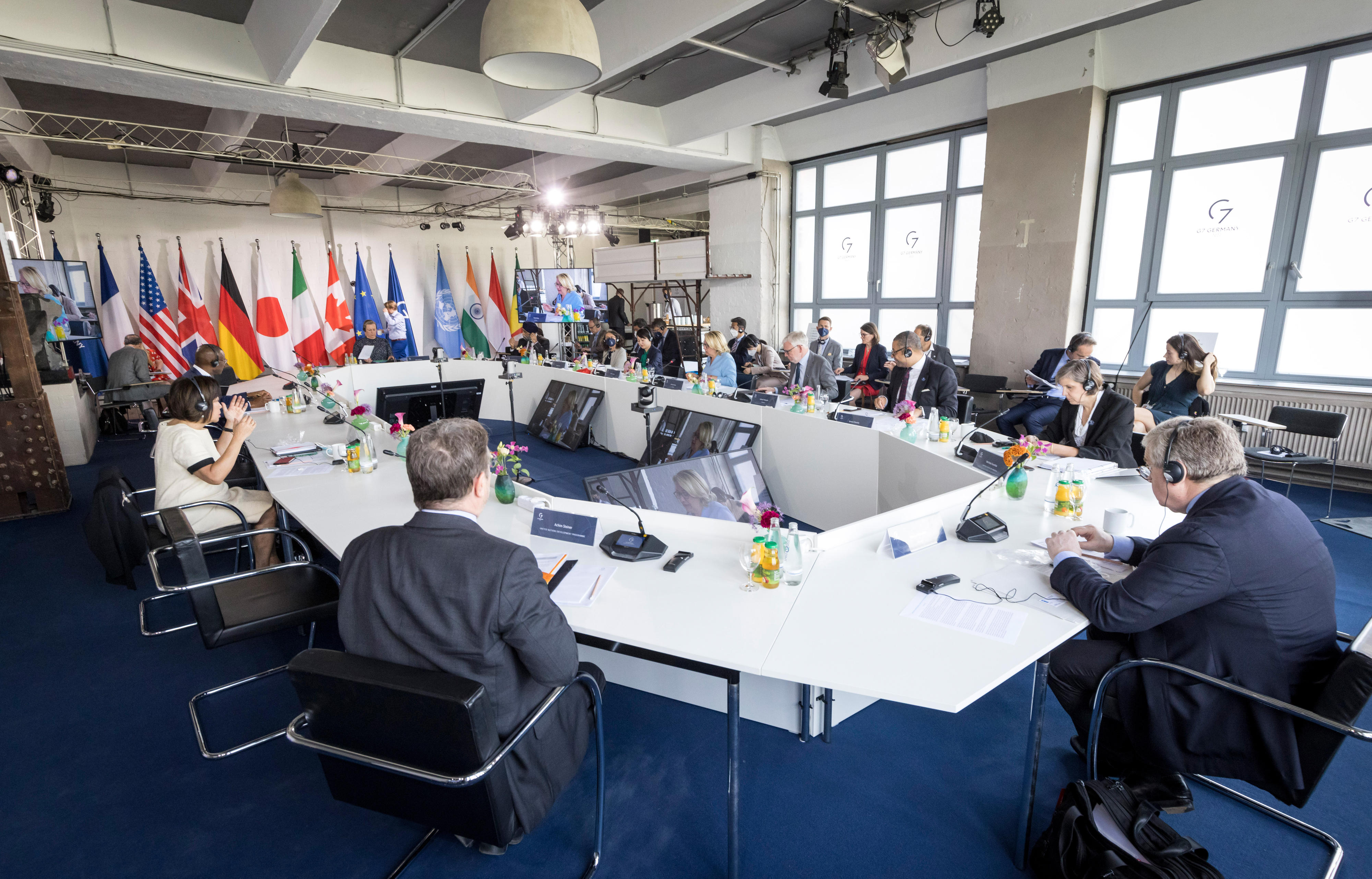Minister Schulze visits Kyiv Development Minister promises Ukraine civilian support for crisis response and reconstruction
Federal Development Minister Svenja Schulze and the Mayor of Borodyanka, Georgiy Yerko, visit the destroyed town of Borodyanka.
As part of her visit, Minister Schulze will visit an emergency shelter for internally displaced people and an agricultural company in order to gain insights into the current status of implementation of the ongoing emergency programme which the Development Ministry has launched for Ukraine. She will also get a first-hand impression of the dimension of the devastation caused by Russian troops in the larger Kyiv area.
During her visit to Ukraine, German Development Minister Svenja Schulze visits a farm in the Lviv region.
Development Minister Schulze said: “All across Ukraine, you can see the terrible consequences of Putin's war of aggression. I have talked to people who were forced to leave their devastated cities and to farmers whose livelihoods are at stake. Many farmers are unable to harvest their crops, and their wheat is sorely missed in Ukraine and in the world. These personal stories are devastating. But they also show me that our support is urgently needed, and that it reaches those who need it. Ukrainians require electricity, drinking water, and shelter. Children and youth should be able to continue to go to school in spite of the war; local companies should survive the economic crisis. I am engaged in discussions with my Ukrainian partners on how we can further expand our support in these fields.”
The Minister's talks with the Ukrainian government do not only cover emergency assistance provided by the Development Ministry for the short-term response to the consequences of the war, but also strategic issues concerning reconstruction in Ukraine.
Development Minister Schulze said: “We already need to lay the foundations for internationally coordinated support for the reconstruction of a free and democratic Ukraine. Germany, too, will do its part in this regard. We are building on our long-standing development cooperation with Ukraine. The Development Ministry has assisted its Ukrainian partners for many years in implementing democratic reforms, for example with regard to building the capacity of local authorities. This has enabled us now to use our development emergency programme to combine quick-impact measures with longer-term sustainable approaches. For example, our support for the provision of accommodation and housing for internally displaced persons includes both short-term and long-term elements, such as the quick repair of buildings and support for housing construction in line with needs and developments on the ground.”
The Development Ministry (BMZ) has responded quickly to Putin's war of aggression by launching its emergency programme. Last week, the programme was scaled up, bringing it to a total volume of about 185 million euros. The emergency support programme is being implemented mainly by the Deutsche Gesellschaft für Internationale Zusammenarbeit (GIZ) and KfW Development Bank on behalf of the BMZ. Partners in Ukraine include the Ukrainian civil protection services, partner municipalities and international partners such as the International Organization for Migration (IOM) and the United Nations Children's Fund (UNICEF).
In order to improve international preparedness to the imminent hunger crisis that will likely be triggered by the war of aggression against Ukraine, G7 development ministers decided on 19 May to launch a Global Alliance for Food Security. German Development Minister Svenja Schulze and World Bank President David Malpass had proposed such an alliance a little earlier. Following this G7 decision, the aim now is to recruit further partners for the Alliance in order to deliver a swift, effective and sustainable joint response to the food crisis triggered by Putin's war of aggression.
Beyond this, the German government is engaged in a broad range of support measures and varied activities to advance the interests of Ukraine



